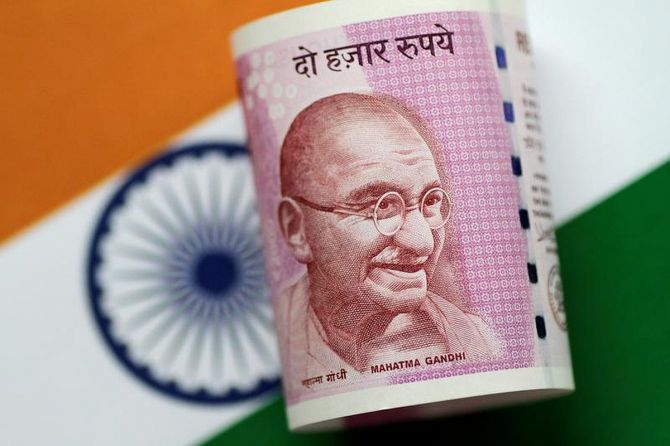'The kind of tax which will be generated from the second pillar may far outweigh what we may be losing in the first pillar.'

If the withdrawal of the retrospective taxation brings in greater investment and business into the country, collections will be higher, Central Board of Direct Taxes Chairman J B Mohapatra tells Dilasha Seth.
The income-tax department has strongly defended the demand raised against Cairn Energy and Vodafone. In the appeal, India's stand was that Cairn ended up not paying taxes anywhere in the world.
As CBDT chairman, how difficult was it for you to let it all go after the withdrawal of the retro taxation?
There is always a time and context when an amendment is brought in.
In 2012, it was felt that the Supreme Court's order in the Vodafone case was probably not right since it was a transaction between two non-residents of shares.
The transaction could not be made without getting taxed in India.
Then realisation dawned that companies which could have restructured or planned their affairs for these kinds of indirect transfer of shares prior to 2012 should not be penalised for legislative action.
The basic reasoning behind the withdrawal of the retro tax was to bring certainty and stability to the interpretation of the I-T Act and diminish the pain of investors struggling with finding meaning in the legislation.
While the tax department was right in raising those demands, CBDT has relented for a bigger cause -- tax certainty and investor sentiment?
The taxation department must not be understood to be operating in isolation or in a perfect vacuum.
The greater the business, the greater the profits, greater will be taxes rendered.
If this decision of retro tax withdrawal brings in more business, it is better for the tax department.
We may lose a rupee now, but we will gain more later.
These litigations entail a cost and our energies get diverted fighting them.
Has India asked the French court to defreeze the mortgaged assets?
The undertaking which the counter-parties are to sign will be unconditional, unequivocal, and unambiguous, saying we are withdrawing all appeals and disengaging from all litigations, whether it is the arbitral panel or the enforcement actions.
Every piece of the litigation will be withdrawn.
The legislation says that Cairn and 16 other parties have to withdraw all cases, if they want to get the benefit of the amendment.
Cairn Energy has filed an appeal in a high court against the Income Tax Appellate Tribunal order related to the same case. Will that need to be withdrawn?
The rules will clarify the mode of action and what both parties will do to honour the amendment.
There's another simultaneous case by Vedanta going on in Singapore, related to the same issue.
Those cases will have to be withdrawn as well.
Direct tax collections are robust. Do you feel the mop-up will exceed the modest Budget target of Rs 11.08 trillion in the current fiscal year?
The numbers look much better than they would have otherwise had last year been a normal one.
What will India press for at the Organisation for Economic Co-operation and Development in October?
The threshold at 20 billion euros covering only the top 100 companies and 20-30 per cent of profits above a 10-per cent margin may be taxed may not mean much in terms of revenue for India.
This is an inclusive framework. You are only looking at one pillar. There is a second pillar, which is the global minimum tax.
It says companies operating in low-tax or no-tax jurisdictions have to pay a minimum tax on an inclusive basis.
The kind of tax which will be generated from the second pillar may far outweigh what we may be losing in the first pillar.
As far as the first pillar is concerned, India wants profit allocation in excess of 10 per cent.
India will always want to negotiate the 20-30 per cent to a higher level.
The advance pricing agreements (APAs) had picked up pace in 2017-18, but have since slowed down.
We have done over 350 agreements, both unilateral and bilateral.
But then the pendency is very big at 1,074. We have done 308 unilateral APAs and 51 bilateral APAs.
Feature Presentation: Aslam Hunani/Rediff.com











 © 2025
© 2025